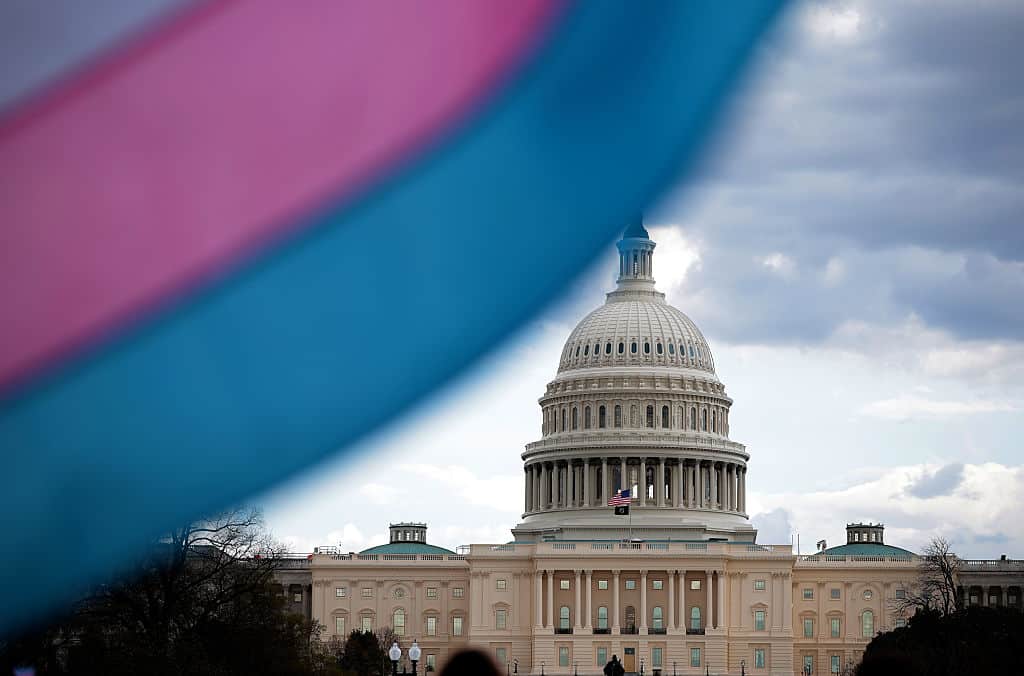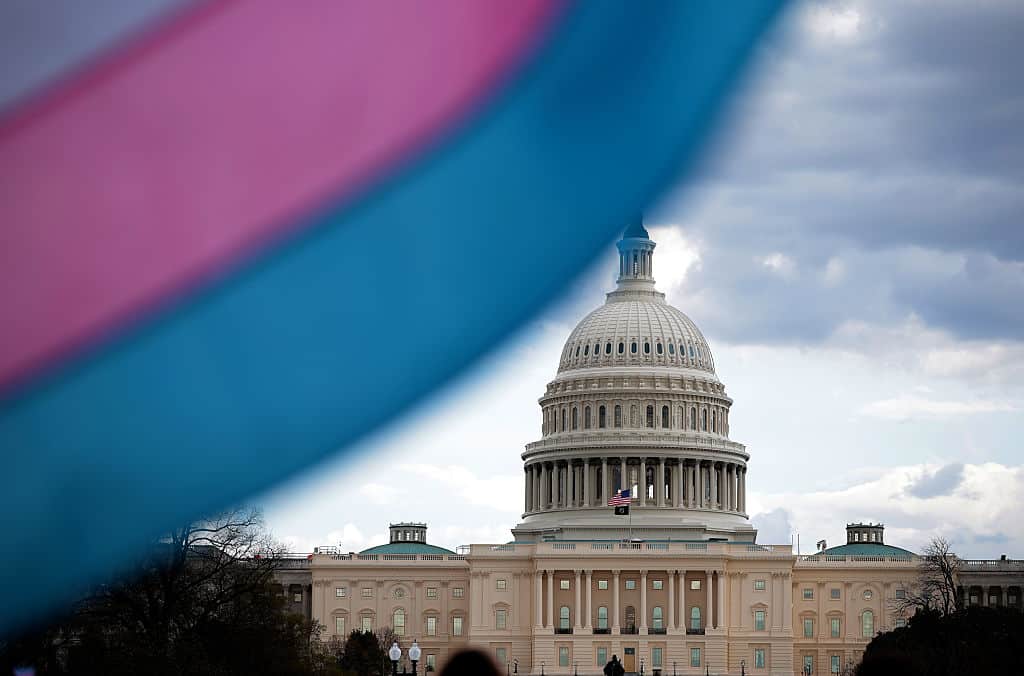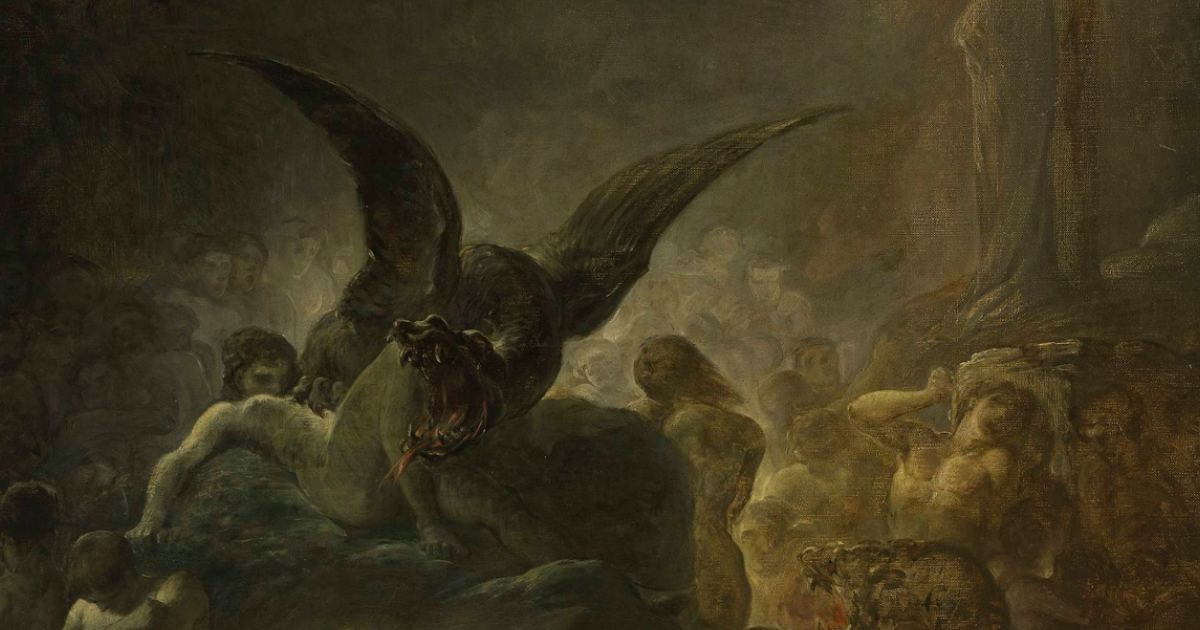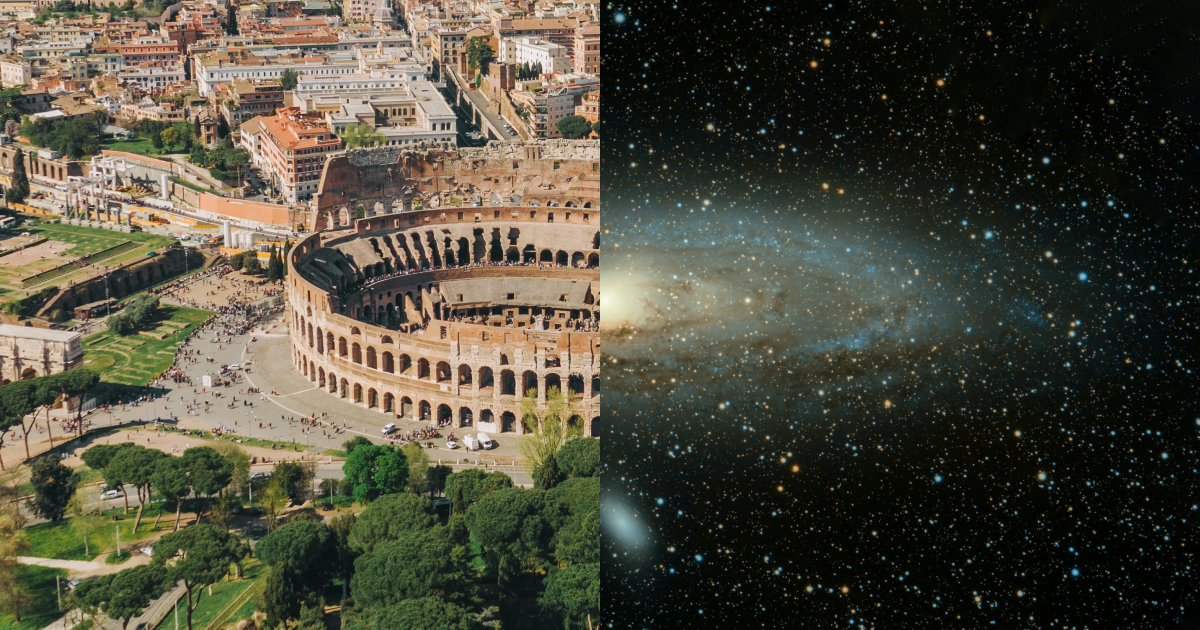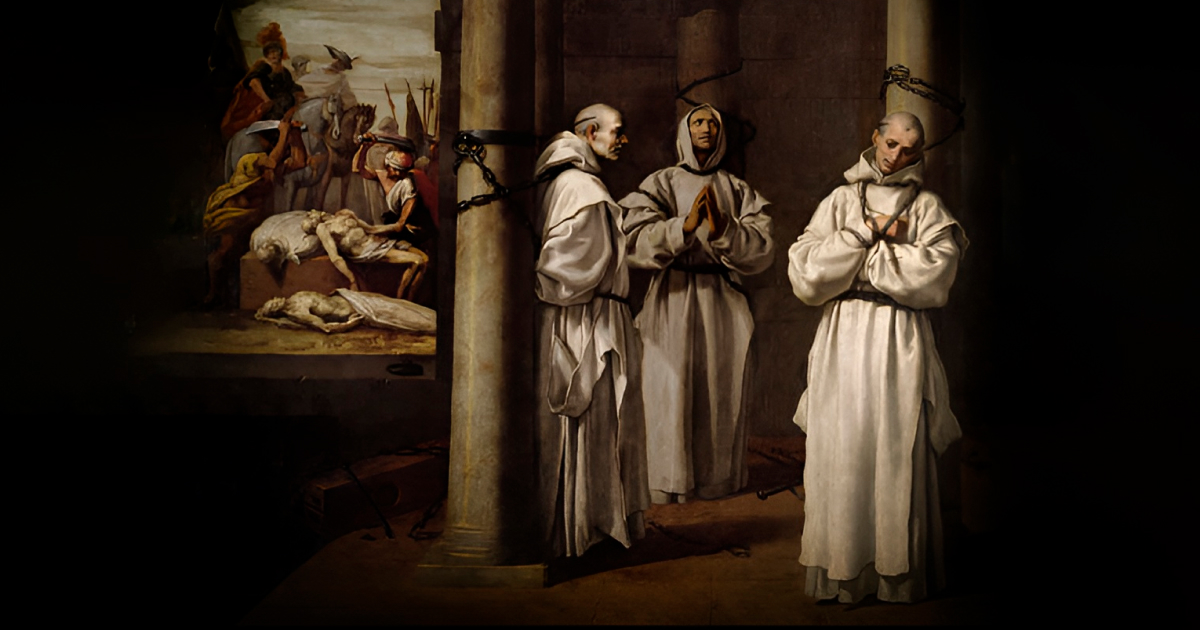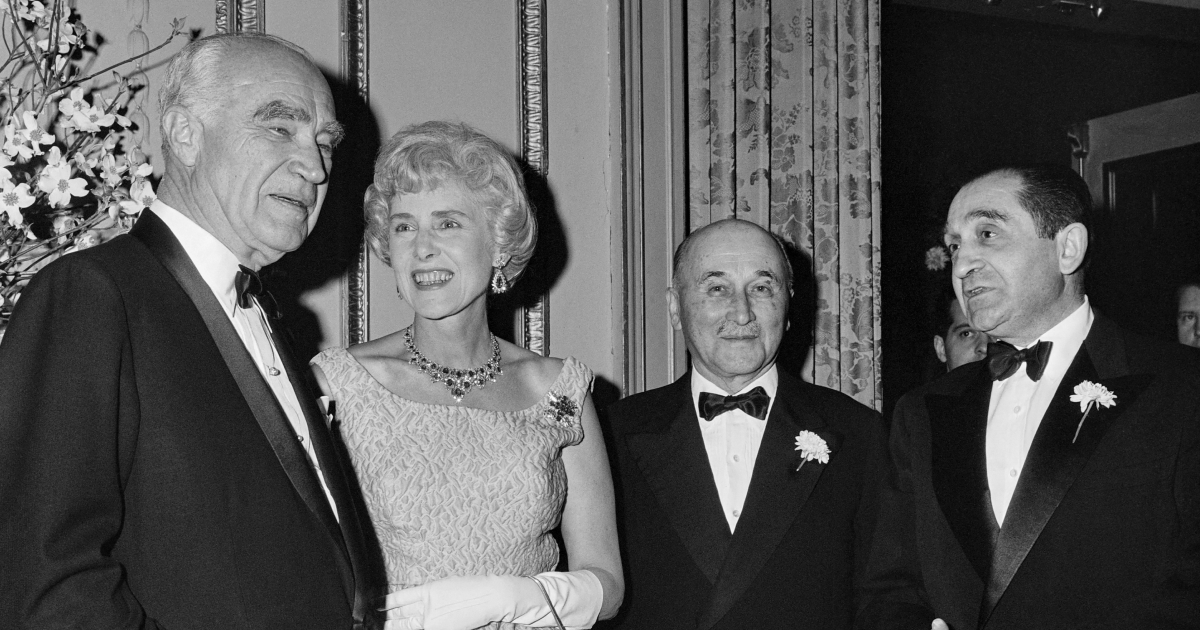“There is not, and there never was on this earth, a work of human policy so well deserving of examination as the Roman Catholic Church."
So wrote Lord Macaulay in the October 1840 issue of the Edinburgh Review when discussing von Ranke’s History of the Popes.
Macaulay went on to say: "The history of that Church joins together the two great ages of human civilisation. No other institution is left standing which carries the mind back to the times when the smoke of sacrifice rose from the Pantheon.
"The proudest royal houses are but of yesterday, when compared with the line of the Supreme Pontiffs … She was great and respected before the Saxon had set foot on Britain, before the Frank had passed the Rhine, when Grecian eloquence still flourished in Antioch, when idols were still worshipped in the temple of Mecca.
"And she may still exist in undiminished vigour when some traveller from New Zealand shall, in the midst of a vast solitude, take his stand on a broken arch of London Bridge to sketch the ruins of St. Paul’s.”
If a great liberal (Whig) enemy of the papacy such as Macauley can recognise the magisterial significance of the papacy and, by implication, of papal elections and inaugurations, then so should we.
The papal name chosen by the American, Robert Prevost, who was inaugurated this Sunday as Pope Leo XIV, has attracted much commentary. In referencing Leo XIII the Pope has focussed attention on that “pope of encyclicals”, and it is worth reflecting on some elements of the teaching of that great pope which bear emphasis in our current predicament.
One of liberalism’s central emblems is “reason”. Yet the Enlightenment view of “reason” is a truncated one at best, sceptical of the metaphysics of the scholastics. Pope Leo XIII, facing a troubled and disunited world in 1878, pronounced in his first encyclical Inscrutabili that the problems of the world were based on “the widespread subversion of primary truths” and reaffirmed the papal commitment to both reason and Revelation.
The world was in turmoil and disunity because of this subversion and Pope Leo XIII saw it as his role to affirm that humble confidence in human reason which was being rejected or distorted by worldly forces.
To this end, his encyclical Aeterni Patris (1879) joltingly announced that the philosophy of St Thomas Aquinas was the truest philosophy of the modern age and that this greatest of mediaeval minds had more to teach the modern world than any other. In so doing he affirmed even more clearly the Church’s confidence that man is a rational creature capable of knowing reality and therefore of knowing God. The Middle Ages had a great deal to teach the sceptical and fractious modern world.
It was a reaffirmation of the truth recognised by GK Chesterton:
“Man, by a blind instinct, knew that if once things were wildly questioned, reason could be questioned first. The authority of priests to absolve, the authority of popes to define the authority, even of inquisitors to terrify: these were all only dark defences erected round one central authority, more undemonstrable, more supernatural than all – the authority of a man to think.”
Thomism had seen a revival in the Counter-Reformation of the sixteenth century before Leo XIII saw its central importance for the Church in the nineteenth. Then it had been used by the Church to counter both Lutheran and humanist distortions of the power of natural human reason and their various over- or under-emphasis on reason in relationship to faith.
Pope Leo XIII, by commanding that the study of Thomas Aquinas be part of the formation of seminarians ensured that philosophical rigour would be a bedrock of the Church’s education and led to an improvement in such training.
Aquinas and his followers had much to say about the nature of the Church and the State and had defended the idea that political society was based on the foundations of natural law and that the Church was a visible jurisdictional institution founded by Christ.
In 1885 Leo XIII in Immortali Dei made clear the proper relation between Church and State:
“There must, accordingly, exist between these two powers a certain orderly connection, which may be compared to the union of the soul and body in man. The nature and scope of that connection can be determined only … by having regard to the nature of each power, and by taking account of the relative excellence and nobleness of their purpose.
"One of the two has for its proximate and chief object the well-being of this mortal life; the other, the everlasting joys of heaven. Whatever, therefore in things human is of a sacred character, whatever belongs either of its own nature or by reason of the end to which it is referred, to the salvation of souls, or to the worship of God, is subject to the power and judgment of the Church. Whatever is to be ranged under the civil and political order is rightly subject to the civil authority.”
The State has its own authority, but the Church also has her own authority which can never be subservient to that of the State, for it stands to it as the soul does to the body. The State is subordinate to the Church in spiritual matters.
That teaching has in recent times become obscured, not only by the difficulty of its present realisation but also by the fallacious idea that what Leo XIII wrote no longer applies now and that somehow the Church is merely there to act as a leaven to men’s souls and is to be viewed in practice as subservient to a “Religion of Mankind” which States are wont to set up for themselves. This clearly contradicts the position enunciated by Leo XIII.
In 1895 the Pope, seeing the danger that the Church’s understanding of Church and State relations would be undermined, felt impelled to warn the Catholic Church in America in LonginquaOceani:
“For the Church amongst you, unopposed by the Constitution and government of your nation, fettered by no hostile legislation, protected against violence by the common laws and the impartiality of the tribunals, is free to live and act without hindrance. Yet, though all this is true, it would be very erroneous to draw the conclusion that in America is to be sought the type of the most desirable status of the Church, or that it would be universally lawful or expedient for State and Church to be, as in America, dissevered and divorced.”
By 1899, Leo XIII had further denounced “Americanism”in Testem Benevolentiae Nostrae (1899) when he addressed certain thinkers who, intoxicated by the American experiment, sought to place natural virtues over supernatural ones:
“The underlying principle of these new opinions is that, in order to more easily attract those who differ from her, the Church should shape her teachings more in accord with the spirit of the age and relax some of her ancient severity and make some concessions to new opinions.
"Many think that these concessions should be made not only in regard to ways of living, but even in regard to doctrines which belong to the deposit of the faith. They contend that it would be opportune, in order to gain those who differ from us, to omit certain points of her teaching which are of lesser importance, and to tone down the meaning which the Church has always attached to them.
"It does not need many words, beloved son, to prove the falsity of these ideas if the nature and origin of the doctrine which the Church proposes are recalled to mind."
Leo XIII then notes: "The Vatican Council says concerning this point: ‘For the doctrine of faith which God has revealed has not been proposed, like a philosophical invention to be perfected by human ingenuity, but has been delivered as a divine deposit to the Spouse of Christ to be faithfully kept and infallibly declared. Hence that meaning of the sacred dogmas is perpetually to be retained which our Holy Mother, the Church, has once declared, nor is that meaning ever to be departed from under the pretense or pretext of a deeper comprehension of them.’”
Now that Cardinal Prevost has taken the name Leo, we can hope that this most un-American of American popes will reaffirm those teachings of his great predecessor which affirm man’s ability to know both fundamental moral principles of the natural law and, in all its subtlety, the proper relation between Church and State.
We see all around us the exhaustion of liberalism’s truncated view of reason and its descent into postmodern identity cults. At a time when it could not be clearer that a body losing its soul becomes a dying thing, let us hope and pray that Leo XIII’s encyclicals reaffirming the proper place of the Church in relation to the State are once again appreciated for the prophetic pronouncements they are.
RELATED: Pope Leo XIV embraces the legacy of the Leos and the challenge of the modern world
Photo: The US Capitol Building is seen behind the Transgender Pride Flag during the Trans Day Of Visibility rally on the National Mall in Washington, DC, USA, 31 March 2025. In rallies around the country, 'trans, non-binary and gender-expansive people and supporters took part ... to fight for trans rights and equality on International Transgender Day of Visibility'. (Photo by Kayla Bartkowski/Getty Images.)
“There is not, and there never was on this earth, a work of human policy so well deserving of examination as the Roman Catholic Church."
So wrote<em> </em>Lord Macaulay in the October 1840 issue of the <em>Edinburgh Review</em> when discussing von Ranke’s <em>History of the Popes</em>.
Macaulay went on to say: "The history of that Church joins together the two great ages of human civilisation. No other institution is left standing which carries the mind back to the times when the smoke of sacrifice rose from the Pantheon.
"The proudest royal houses are but of yesterday, when compared with the line of the Supreme Pontiffs … She was great and respected before the Saxon had set foot on Britain, before the Frank had passed the Rhine, when Grecian eloquence still flourished in Antioch, when idols were still worshipped in the temple of Mecca.
"And she may still exist in undiminished vigour when some traveller from New Zealand shall, in the midst of a vast solitude, take his stand on a broken arch of London Bridge to sketch the ruins of St. Paul’s.”
If a great liberal (Whig) enemy of the papacy such as Macauley can recognise the magisterial significance of the papacy and, by implication, of papal elections and inaugurations, then so should we.
The papal name chosen by the American, Robert Prevost, who was inaugurated this Sunday as Pope Leo XIV, has attracted much commentary. In referencing Leo XIII the Pope has focussed attention on that “pope of encyclicals”, and it is worth reflecting on some elements of the teaching of that great pope which bear emphasis in our current predicament.
One of liberalism’s central emblems is “reason”. Yet the Enlightenment view of “reason” is a truncated one at best, sceptical of the metaphysics of the scholastics. Pope Leo XIII, facing a troubled and disunited world in 1878, pronounced in his first encyclical <em>Inscrutabili </em>that the problems of the world were based on “the widespread subversion of primary truths” and reaffirmed the papal commitment to both reason and Revelation.
The world was in turmoil and disunity because of this subversion and Pope Leo XIII saw it as his role to affirm that humble confidence in human reason which was being rejected or distorted by worldly forces.
To this end, his encyclical <em>Aeterni Patris</em> (1879) joltingly announced that the philosophy of St Thomas Aquinas was the truest philosophy of the modern age and that this greatest of mediaeval minds had more to teach the modern world than any other. In so doing he affirmed even more clearly the Church’s confidence that man is a rational creature capable of knowing reality and therefore of knowing God. The <a href="https://thecatholicherald.com/dont-trust-the-bbcs-take-on-the-medieval-age-it-was-colourful-vibrant-like-the-christian-faith-that-sustained-it/"><mark style="background-color:rgba(0, 0, 0, 0)" class="has-inline-color has-vivid-cyan-blue-color">Middle Ages had a great deal to teach</mark></a> the sceptical and fractious modern world.
It was a reaffirmation of the truth recognised by GK Chesterton:
“Man, by a blind instinct, knew that if once things were wildly questioned, reason could be questioned first. The authority of priests to absolve, the authority of popes to define the authority, even of inquisitors to terrify: these were all only dark defences erected round one central authority, more undemonstrable, more supernatural than all – the authority of a man to think.”
Thomism had seen a revival in the Counter-Reformation of the sixteenth century before Leo XIII saw its central importance for the Church in the nineteenth. Then it had been used by the Church to counter both Lutheran and humanist distortions of the power of natural human reason and their various over- or under-emphasis on reason in relationship to faith.
Pope Leo XIII, by commanding that the study of Thomas Aquinas be part of the formation of seminarians ensured that philosophical rigour would be a bedrock of the Church’s education and led to an improvement in such training.
Aquinas and his followers had much to say about the nature of the Church and the State and had defended the idea that political society was based on the foundations of natural law and that the Church was a visible jurisdictional institution founded by Christ.
In 1885 Leo XIII in <em>Immortali</em><em> Dei</em> made clear the proper relation between Church and State:
“There must, accordingly, exist between these two powers a certain orderly connection, which may be compared to the union of the soul and body in man. The nature and scope of that connection can be determined only … by having regard to the nature of each power, and by taking account of the relative excellence and nobleness of their purpose.
"One of the two has for its proximate and chief object the well-being of this mortal life; the other, the everlasting joys of heaven. Whatever, therefore in things human is of a sacred character, whatever belongs either of its own nature or by reason of the end to which it is referred, to the salvation of souls, or to the worship of God, is subject to the power and judgment of the Church. Whatever is to be ranged under the civil and political order is rightly subject to the civil authority.”
The State has its own authority, but the Church also has her own authority which can never be subservient to that of the State, for it stands to it as the soul does to the body. The State is subordinate to the Church in spiritual matters.
That teaching has in recent times become obscured, not only by the difficulty of its present realisation but also by the fallacious idea that what Leo XIII wrote no longer applies now and that somehow the Church is merely there to act as a leaven to men’s souls and is to be viewed in practice as subservient to a “Religion of Mankind” which States are wont to set up for themselves. This clearly contradicts the position enunciated by Leo XIII.
In 1895 the Pope, seeing the danger that the Church’s understanding of Church and State relations would be undermined, felt impelled to warn the Catholic Church in America in <em>Longinqua</em><em> </em><em>Oceani</em>:
“For the Church amongst you, unopposed by the Constitution and government of your nation, fettered by no hostile legislation, protected against violence by the common laws and the impartiality of the tribunals, is free to live and act without hindrance. Yet, though all this is true, it would be very erroneous to draw the conclusion that in America is to be sought the type of the most desirable status of the Church, or that it would be universally lawful or expedient for State and Church to be, as in America, dissevered and divorced.”
By 1899, Leo XIII had further denounced “Americanism”<em> </em>in <em>Testem Benevolentiae Nostrae</em> (1899) when he addressed certain thinkers who, intoxicated by the American experiment, sought to place natural virtues over supernatural ones:
“The underlying principle of these new opinions is that, in order to more easily attract those who differ from her, the Church should shape her teachings more in accord with the spirit of the age and relax some of her ancient severity and make some concessions to new opinions.
"Many think that these concessions should be made not only in regard to ways of living, but even in regard to doctrines which belong to the deposit of the faith. They contend that it would be opportune, in order to gain those who differ from us, to omit certain points of her teaching which are of lesser importance, and to tone down the meaning which the Church has always attached to them.
"It does not need many words, beloved son, to prove the falsity of these ideas if the nature and origin of the doctrine which the Church proposes are recalled to mind."
Leo XIII then notes: "The Vatican Council says concerning this point: ‘For the doctrine of faith which God has revealed has not been proposed, like a philosophical invention to be perfected by human ingenuity, but has been delivered as a divine deposit to the Spouse of Christ to be faithfully kept and infallibly declared. Hence that meaning of the sacred dogmas is perpetually to be retained which our Holy Mother, the Church, has once declared, nor is that meaning ever to be departed from under the pretense or pretext of a deeper comprehension of them.’”
Now that Cardinal Prevost has taken the name Leo, we can hope that this most un-American of American popes will reaffirm those teachings of his great predecessor which affirm man’s ability to know both fundamental moral principles of the natural law and, in all its subtlety, the proper relation between Church and State.
We see all around us the exhaustion of liberalism’s truncated view of reason and its descent into postmodern identity cults. At a time when it could not be clearer that a body losing its soul becomes a dying thing, let us hope and pray that Leo XIII’s encyclicals reaffirming the proper place of the Church in relation to the State are once again appreciated for the prophetic pronouncements they are.
<a href="https://thecatholicherald.com/pope-leo-xiv-channels-leo-xiii-and-echoes-leo-x/"><mark style="background-color:rgba(0, 0, 0, 0)" class="has-inline-color has-vivid-cyan-blue-color"><strong><em>RELATED: Pope Leo XIV embraces the legacy of the Leos and the challenge of the modern world</em></strong></mark></a>
<em>Photo: The US Capitol Building is seen behind the Transgender Pride Flag during the Trans Day Of Visibility rally on the National Mall in Washington, DC, USA, 31 March 2025. In rallies around the country, 'trans, non-binary and gender-expansive people and supporters took part ... to fight for trans rights and equality on International Transgender Day of Visibility'. (Photo by Kayla Bartkowski/Getty Images.)</em>





